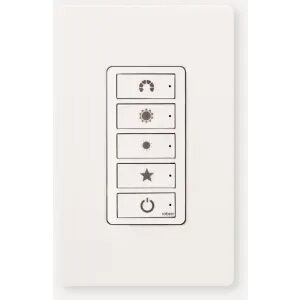Find out what you need to know about at-home steam systems.

Ahhh… just thinking about relaxing in a steam shower can bring a sense of calm. Beyond providing a much-needed escape, steam can also improve your mental, physical, and overall wellbeing. And with today’s steam showers, you can bring that soothing steam experience into your home.
From designing the space to selecting the tile, shower faucet, and steam shower components, there are numerous details that go into creating an at-home steam shower. The most critical component is at the heart of every great steam experience: the steam generator. If you’re thinking about adding steam to your shower, this overview will help you choose the right steam shower system for your home.
As we learned in science class, water (a liquid) turns to steam (a gas) when it is heated to its boiling point. This occurs at 212 degrees Fahrenheit (100 degrees Celsius) at sea level. In a steam shower, the steam shower generator’s job is to heat water to it’s boiling point. After water flows through the water line into the steam generator, an electric heating element raises the temperature of the water to its boiling point, creating steam. The steam travels through a pipe from the generator into the shower enclosure, where it is released from an outlet called the steam head.
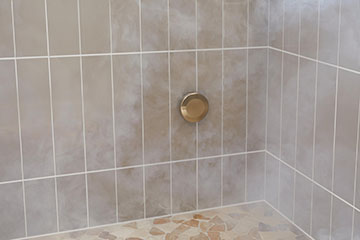
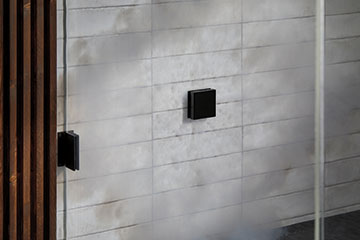
While the scientific process of turning water into steam is generally the same in every steam shower generator, there are different methods to produce steam. For example, some generators use a simple thermostat that cycles the steam full on and full off. Some steam generators provide “proportional output,” which means they can vary the amount of steam released into the space as needed to maintain the desired temperature. As the room heats up, the steam released gradually reduces to consistently regulate the temperature in the steam environment without the generator cycling on and off repeatedly.
It’s important that the steam generator you use matches the rated voltage in your home. Since most homes in the United States operate at 240 volts, a 240-volt generator is usually appropriate. Consult your electrician before purchasing a steam generator if you are not certain about the voltage in your home.

The capacity of your steam generator in kilowatts (kW) will ultimately be determined by the size and construction details of your shower enclosure. It is helpful to use a sizing guide to determine the properly-sized steam shower generator for your space. For example, visit the Delta Steam Configuration Tool.
Why is it important to get a steam generator that’s the right capacity? If your generator is too small for the space, it won’t generate enough steam to create a fully immersive steam experience. If it’s too large, it can waste energy or overwhelm the user with too much steam.
The physical size of the generator is also important, especially when deciding the install location of the generator. Most manufacturers offer compact models—about the size of a briefcase—that can be tucked away in a closet or other nearby space.
Because the steam shower generator is hidden, how it looks is not a primary concern, but the material it’s made of is important and should be extremely durable.
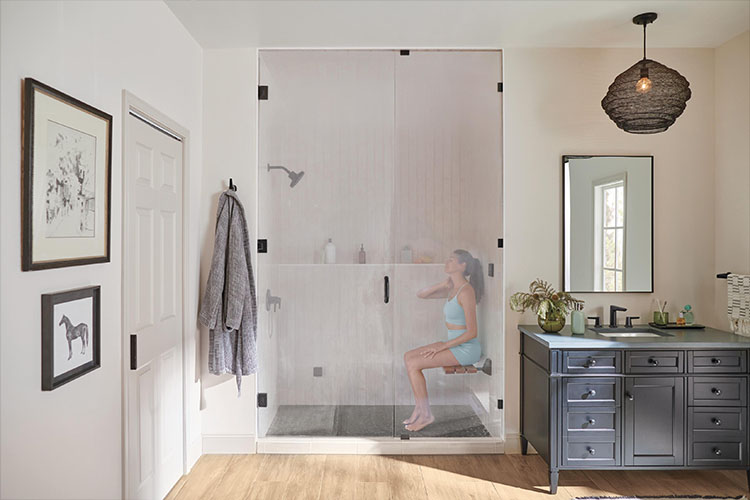
It generally takes 10 to 15 minutes to heat up a steam shower with properly-sized generators (see the previous section, “Why Steam Shower Generator Capacity, Size, and Materials are Important”).
Although a quietly operating unit is ideal for a satisfying steam shower, be aware that steam shower generators may make a little noise. The release of steam from the unit may be audible. Other common sources of noise include the valves that are responsible for bringing water into the generator or moving it between chambers. [Consult your [electrician][plumber] for advice on how to make a steam generator quieter.]
Performance Alert! While some noise is normal for steam shower systems, certain sounds could indicate a problem with your generator. For example, if you hear a high-pitched buzzing sound, this could signal a problem with the contactor or transformer. A loud buzzing from the solenoid valve that brings water into the steam generator could mean that the strainer built into the valve is clogged or that the water to the generator has been turned off.
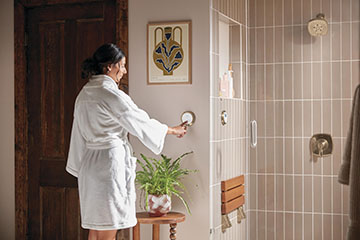
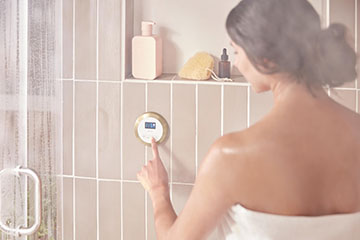
Since the steam shower generator is usually hidden away, a control is needed to turn it on/off and regulate the temperature from the shower area. Internal controls are located inside the shower enclosure, which allow you to adjust the steam system without leaving the shower. External controls are located outside the shower enclosure, which makes it possible to turn on the steam shower without entering the space. Some people choose to install both types of controls.
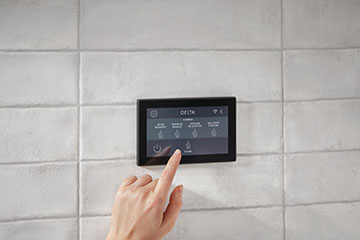
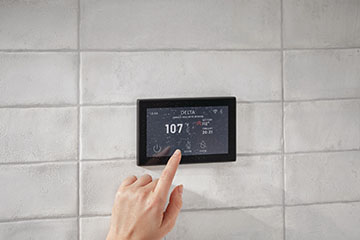
In addition to the basic on/off and temperature functions, some controls provide additional features, such as different user profiles, connections to home Wi-Fi for remote access, and automatic timers. In addition, and from a design standpoint, some controls are also available in a variety of finishes to complement your shower faucet and other bathroom décor.

Installation Alert! Placement of the steam shower control, especially an internal control, is important for a great steam shower. Be sure to consult the installation information for optimal control placement.
Whether you want to decompress after a long day, relax after a workout, or focus on your well-being , a steam shower may be just what you’re looking for. Are you ready to introduce steam into your life? Check out our Delta® Steam Systems to find out how you can enjoy steam from the comfort of your home.


